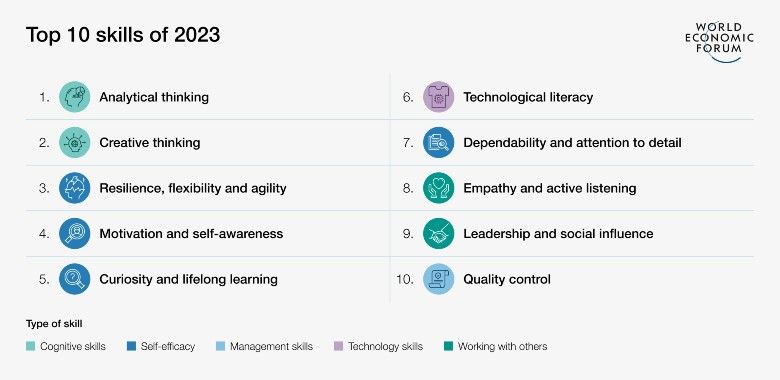What Is a Liberal Arts Degree, and What Can You Do With It?
Read now/f/64062/800x451/d0d882f39b/liberal-arts.jpg)
/f/64062/600x480/8947d22295/johns-hopkins-library.jpg)
Jump To
The Practical Value of Philosophy Study
Critical Thinking and Problem Solving
Education, Academia, Writing
Law & Public Policy
Social Causes and Public Service
Do you find joy in unraveling complex ideas and articulating profound thoughts? If so, philosophy might be the perfect major!
Unfortunately, an all-too-common falsehood is that getting a philosophy degree will leave you jobless. Is that really true?…
The fact is, philosophy students hone valuable and versatile critical thinking, research and communication skills that prime them for success in many career pathways. With a philosophy degree and the right vision, you can unlock doors to many exciting opportunities.
Philosophy and religion have historically been the very root of our western principles of education. Yet today, students often worry about the “value” of getting a philosophy degree and doubt that philosophy can be a good major in today’s business-centric and science-and-tech-driven world!
In fact, some people are even arguing that college learning itself, especially in liberal arts majors, is no longer a valuable investment…
But look a little closer and you'll see that these apparent doubts about the value of a foundational liberal arts education don’t hold much water.
For example, some think the “value” of a college degree is worth less today simply because more people are getting college degrees! As a budding philosophy major, you’re sure to see the lack of clear logic in this thinking…
Also, those who question the “value” of a college degree tend to have a narrow transactional view of things — valuing only specific technical skills necessary to do a specific job function.
To bolster their claim, they point to statistics suggesting that only 25% of US citizens work in jobs directly related to their major…
But is this telling us that the other 75% of students picked majors without value for their jobs?...
Or, is it telling us instead that many successful journeys are built on a foundation of a well-rounded education and not vocation-specific degree programs?...
As an aspiring philosophy major you’ll want to question claims and arguments in this very way!
The fact is, many people will gain foundational professional skills by getting a college degree, especially a degree in a field like philosophy at a school with a strong liberal arts tradition. Later, they will discover opportunities to hone more technical, job-specific skills further down the road.
When it comes down to it, most people recognize the underlying value and positive return on investment of a good well-rounded college education. Philosophy majors and other liberal arts majors will have useful and versatile skills that help them thrive in jobs, in lifelong professional learning, and in postgraduate degree programs too.
In fact, while some question the practical value of studying liberal arts majors, many other commentators spotlight employers’ strong interest in recruiting well-rounded, well-educated employees — employees who can consider opposing viewpoints when working in teams, communicate effectively in complex work settings, show resilience, and are agile learners who can adapt to change.
For example, in the most recent report about the future of jobs from the World Economic Forum, cognitive skills top the list of skills employers need today and looking into the future…

Source: World Economic Forum, The Future of Jobs Report 2023
Of course, it’s true that you could major in philosophy only to become a solipsistic and dogmatic recluse that few employers want to hire…
But, with a larger vision for how a philosophy major fits into a productive and passionate career journey, you’re likely to find that a bachelor’s degree with a major in philosophy will equip you with the analytical, empathic, and agile cognitive and critical thinking skills you need to excel in many career sectors!
With those points behind us, let’s turn to exploring the variety of promising pathways you can embark upon with the help of a solid grounding in philosophy.
In addition to the intrinsic rewards, a degree in philosophy can also equip you with professional skills that give you unique potential to support the needs and goals of business leaders and entrepreneurs.
While majoring in business might seem like a more straightforward path to a business career, keep in mind that your unique perspectives and soft skills as a philosophy major could position you to stand out from the crowd.
Philosophy training could provide some rocket fuel that helps you supercharge a long-term business career. In fact, according to some news outlets, business management skills top the list of high-demand skills in 2023, and successful managers need strong analysis and communication skills.
Businesses need more than business majors in their ranks. Today large enterprises are navigating ever more complex challenges: social, global, technological, regulatory, and ethical.
As a philosophy major you could bring a deep level of qualitative inquiry and analysis skills to the table. When it comes to business planning and decision-making processes you can help business leaders by tapping into a range of aptitudes that you build upon as a philosophy major:
As a philosophy major you’ll develop your ability to apply more intricate and nuanced analysis to complex business challenges. And, when it comes time to “sell” those solutions to the C-Suite execs, you’ll have another set of skills for that important work — skills in research, communication, and persuasive reasoning.
While a double major or a second degree in business should also be valuable, your deep dive in philosophy could help you stand out in terms of fresh insights and skills that just aren’t that common among your management peers.


Another promising avenue for philosophy graduates interested in business is becoming a social entrepreneur.
Rooted in their philosophical understanding of societal needs and moral imperatives, social entrepreneurs devise business models that address pressing issues and eliminate the most harmful business practices, with the goal of achieving a meaningful impact on society.
As a philosophy major, your much deeper understanding of ethics and social theories would give you the ethical compass necessary to navigate the challenges of social entrepreneurship, fostering positive change in communities and society at large.
| CAREERS | ANNUAL MEDIAN PAY (US$) |
|---|---|
| Management Analysts | $95,2390 |
| Top Executives | $100,080 |
| Human Resources Managers | $130,000 |
Source: Bureau of Labor Statistics
If you study philosophy, and love philosophy, the most organic next step might be to seek a career teaching philosophy. That said, teaching is not for everyone… But if you love intellectual and interpersonal interaction and enjoy sharing your passion and knowledge with others as much as you do advancing your knowledge, then the educator pathway is probably worth a hard look!
If you “love (to seek) wisdom” (which is what the Greek word philosophy means), then you may want to envision a long romance with philosophy — starting as an undergraduate and living the life of a philosophy scholar and teacher through a career in academia.
Your journey would take flight beginning in college, almost certainly entail a master’s degree if not a doctoral degree, but wouldn’t end their.
After getting one or more postgraduate degrees you would seek avenues for sharing your passion for philosophy with students as a college professor.
You might also continue doing research and authoring your own essays, articles or books.
Not all your students will share your same passion for philosophy, but you can open their eyes to new ways of seeing the world while also fostering rigorous critical thinking, analysis, inquiry, and communication skills!


If you enjoy the energy and wonder that younger students have, you may also want to consider using your background in philosophy to work as a high school teacher.
With a background in philosophy and the analytic and writing skills you learn in college as a philosophy major and any required licensing steps, you should be well equipped to teach high school philosophy courses as well as some other liberal arts courses.
As a high school teacher you’ll enjoy many intrinsic rewards helping guide and educate teens and young adults. You may also discover you love the challenge of finding new ways to engage and inspire your students, many of whom may come to class questioning the value of education and wondering what philosophy has to do with their own life experiences.
| CAREERS | ANNUAL MEDIAN PAY (US$) |
|---|---|
| Postsecondary Teachers | $80,840 |
| Elementary, Middle, and High School Principals | $101,320 |
| High School Teachers | $62,360 |
Source: Bureau of Labor Statistics
A rigorous philosophy program should give you exceptional training in how to approach and craft sophisticated and artful communications.
In fact, your philosophy major should reward you intellectually by introducing you to the wide range of creative and meticulous writing styles you’ll find among the leading philosophers. As you write many of your own philosophy papers for your professors, you’ll develop your own personal, creative, and compelling voice and way with words, syntax, and figures of speech — equipping you for a range of writing careers…
Your lively curiosity, deeply inquisitive nature, and ability to look for logical threads and gaps under the surface of myriad perspectives and arguments — all of this provides you a strong foundation for careers in writing.
Career wise, consider expressing your philosophical ponderings through blogs, engaging podcasts, or thought-provoking articles, for example.
As a philosophy major, you’re equipped to delve into profound forms of social and intellectual inquiry, charting a carefully reasoned path to fresh perspectives that captivate your audience's minds.
You may aspire to dive into the heart of existential questions, ethical dilemmas, and societal values — weaving your insights into compelling narratives that resonate with your readers and listeners.
Or, your path may involve taking one step back from philosophical topics. Instead, you’ll use your well-honed writing and analytical skills to write about contemporary social controversies, or to provide insightful commentary, analysis, or advocacy in topics related to business, law, world affairs, or other fields.
Whether it's debating ethical theories, future business disruptions, economics, or technology trends… you should find your philosophy major offers some valuable training to jumpstart a career as a freelance writer or in journalism.
Either way you may find yourself guiding provocative and consequential conversations with a depth and nuance that others find hard to master.
If you want to really lean into your passion for philosophy rather than leverage it in more “practical” career paths, committing to a literary career is an exciting prospect.
A passion for ideas and for finding creative ways to make philosophical inquiry fresh and intriguing could lead you to a very satisfying career path.
The fact is, philosophy isn't just a subject; it's a way of thinking.
As a philosophy writer, you have the power to stimulate philosophical dialogues and intellectual curiosity. Your philosophical background provides a rich tapestry of perspectives and enduring insights upon which you paint your own masterpieces.
Whether it’s writing philosophical fiction or compelling essays about truth, politics, or the status quo, don’t feel like it’s off limits to explore working as a literary author only because it’s often the path less traveled.
| CAREERS | ANNUAL MEDIAN PAY (US$) |
|---|---|
| New Analysts, Reporters, and Journalists | $55,960 |
| Technical Writers | $79,960 |
| Writers and Authors | $73,150 |
| Editors | $73,080 |
Source: Bureau of Labor Statistics
A philosophy pathway is also an excellent one to jumpstart a career in law. Law schools want students with the kinds of critical thinking skills you’ll strengthen as a philosophy major.
As a practical matter, too, philosophy majors have demonstrated an ability to score higher than peers from other majors on the LSAT.
In fact, if you’re wondering what educators at Harvard typically cite as good pre-law skills and majors, philosophy as a discipline, and the skills you learn as a philosophy major, both rank high.
| IMPORTANT PRE-REQUISITE SKILLS FOR LAW SCHOOL | GOOD MAJORS FOR LAW SCHOOL |
|---|---|
| Critical Thinking Skills Reading, and Textual and Verbal Analysis Skills Written and Oral Communication Skills Persuasive Writing Skills Expository Writing and Research Skills | History Philosophy Economics English Political Science Criminal Justice Psychology |
Source: Harvard Division of Continuing Education
If you have a gift for textual analysis and complex thinking and argumentation, or you enjoy sleuthing as a case law researcher, then law could be a good career path. Exploring philosophy as a pre-law student will help you apply law to broader social and ethical contexts and provide you valuable reading, verbal analysis, and writing skills to thrive in law school and in a law career.
.

Some law pathways include becoming a paralegal or research assistant. More common ones include going on to get a postgraduate degree in law and completing other requirements for careers in legal research or advising, or to become a licensed lawyer or attorney.
If law sounds intriguing, you should also compare that path to one in public policy. The world of public policy spans local, regional, state, national, and international arenas and is about as broad and varied as you can imagine.
But what do public policy analysts and advocates do? Three key roles in the public policy sector are research, analysis, and advocacy.
Research: The creation of sound public policies requires lots of objective and factual data. Doing extensive reading and research about existing policies and the impacts of policies, these are all areas that require inquiry and research.
Analysis: Lots of research, data, and information may not be of much use until someone can analyze it and find useful and meaningful patterns, insights, or trends. The analysis process leads to findings that then help define best practices and best policies.
Advocacy: Advocacy is the process of turning policy research and insights into action. People with advanced writing, presentation, and logical analysis and persuasion skills are needed to help policy makers, judges, experts, civic leaders, and politicians take action and adopt good policies.
As a philosophy major you’ll build skills very much in tune with public policy careers and roles:
You may find you want to go on to get a master’s degree in public policy or related discipline, but you should find, when you do, that choosing to major in philosophy provided you a solid academic foundation for the next steps of your journey.
| CAREERS | ANNUAL MEDIAN PAY (US$) |
|---|---|
| Lawyers | $135,740 |
| Paralegals and Legal Assistants | $59,200 |
| Arbitrators, Mediators, and Conciliators | $60,030 |
| Political Scientists | $98,900 |
Source: Bureau of Labor Statistics
For high school students passionate about philosophy and contemplating majoring in the subject in college, the prospect of pursuing a career in social cause advocacy or similar advocacy work in the nonprofit sector can be both inspiring and fulfilling.
One prominent avenue within this field is becoming a human rights advocate.
As a human rights advocate with a background in philosophy, you can play a vital role in championing ethical and moral principles on a global scale.
In this kind of role you can truly engage deeply and professionally with complex philosophical concepts, using your knowledge, communication, research, and writing skills to spotlight social injustices and promote human rights.
Philosophy majors equipped with a deep understanding of moral reasoning can be highly instrumental in advocating for fairness and justice in a world plagued by inequality.
As a human rights advocate you can work in diverse roles in nonprofit leadership or as a freelance author or even in academia or research institutions.
Another compelling career path for philosophy enthusiasts could be environmental ethics or environmental justice specialist. In this purpose-driven role, you would delve into the intersection of philosophy and environmental concerns, advocating for sustainable practices and conservation efforts.
Philosophy majors bring their unique perspectives on ethics and justice to the table — questioning the ethical implications of human actions on the environment and impacted communities.
By integrating philosophical reasoning and ethical concepts related to social justice with real-world environmental issues, you could find yourself helping to shape a more sustainable and just world for future generations.
| CAREERS | ANNUAL MEDIAN PAY (US$) |
|---|---|
| Social and Community Service Managers | $74,240 |
| Urban and Regional Planners | $79,540 |
| Environmental Specialists | $76,480 |
Source: Bureau of Labor Statistics
In philosophy courses you’ll hone skills you can apply to government service roles that require advanced negotiation, advocacy, and communication expertise.
One promising avenue in government service could be working your way to becoming a diplomat or serving in similar foreign service roles. Philosophy majors are primed to excel in understanding diverse perspectives and finding common ground amidst differences.
You’ll come to foreign service work armed with an ability to think through and beyond ingrained assumptions, dogmatic thinking, or purely ethnocentric prejudices and ideological assumptions.
These abilities can help you understand conflicting viewpoints and manage complex negotiations while also preparing you to learn about different cultures and social mores.
By fostering dialogue and mediating disputes, a diplomat can contribute significantly to international relations and conflict resolution, working towards global harmony and cooperation.


Furthermore, philosophy graduates might find a rewarding and challenging career niche as political strategists, playing a pivotal role in shaping political narratives and discourse.
In the fast-paced realm of politics, where public opinion often sways the course of nations, philosophy majors offer a distinctive perspective. Your exposure to ethical concepts and moral reasoning should enable you to probe political situations and the ethical implications of formative policies and decisions.
By anchoring political strategies in ethical principles, you could help promote policies that resonate with the democratic values of fairness, justice, and social responsibility.
For this pathway consider schools with strong political science traditions as well as a dual degree or similar multi-disciplinary approach.
| CAREERS | ANNUAL MEDIAN PAY (US$) |
|---|---|
| Public Relations Specialists | $67,440 |
| Political Scientists | $128,020 |
Source: Bureau of Labor Statistics
Technology innovation is raising thorny ethical questions. How society responds will have important consequences in the future.
The truth is that legislators, consumers, and tech companies themselves ultimately will have to wage important policy combats that will shape our collective future.
High school students who choose to study philosophy at top schools could be well equipped to help society navigate these futuristic policy and ethics challenges.
Leaders grappling with ethical and regulatory debates will need to call upon consultants and policy experts able to consider many ethical, technological, economic, legal, and social factors and perspectives in order to guide strategy and decision making.
With this big picture in mind, let’s consider two specific roles that illustrate tech-oriented pathways perfect for philosophy majors.
The emergence of the internet and now AI technologies are big disrupters creating big paradigm shifts. Artificial intelligence is a tech innovation that will present many ethical conundrums, portending many momentous disruptions to long-standing economic and social norms, and raising profound social questions.
As a result, there is a growing urgency to “get ahead” of these accelerating innovations when it comes to evaluating the ethical dimensions of tech policies and regulations.

In this context, AI ethics consultant is an intriguing career avenue for philosophy majors. AI ethics consultants — driven by relentless research and strong abstract thinking skills — will delve deep into the ethical implications of emerging technologies.
As a philosophy major you’ll be trained for synthesizing divergent points of view and research sources in the way that policy consultants do.
You can further prepare for this kind of career specialization with additional study in ethics, technology, sociology, and economics.
Let’s face it, most business students and executives, as well as lawyers, and also many scientists, would find it daunting to make sense of so many intersecting disciplines and nebulous future possibilities…
But this is where philosophy students can excel and maybe even feel right at home intellectually and professionally!
Another compelling career path for philosophy enthusiasts within the tech industry is that of a tech policy analyst.
Going forward, more and more business leaders will grapple with integrating ethical perspectives and concepts — such as user privacy and digital rights — with more traditional strategic planning.
As a tech policy analyst, you would use your philosophy background to help tech companies or industry leaders evaluate the ethical dimensions of their tech products and their business policies, practices, and impacts.
The study you do as a philosophy major will equip you to look at policy from a big-picture perspective. And, your critical reading skills will also serve you well when you need to meticulously analyze policy documents, language, and terminology.
While a tech-driven economy is boosting the appeal of STEM majors like computer science and engineering, the ethical challenges that come with new technologies may promise a bright future for trained philosophers too.
It’s hard to predict all future trends, but it seems likely philosophy majors will be needed to help society, markets, entrepreneurs, legislators, and scientists confront and navigate the ethical storm clouds on our futuristic horizon!
| CAREERS | ANNUAL MEDIAN PAY (US$) |
|---|---|
| Business Operations Specialists | $87,810 |
| Compliance Officers | $73,320 |
| Management Analysts | $95,220 |
Source: Bureau of Labor Statistics
Final Thoughts
We hope you can see that the choice between philosophy and more “practical” majors is not really as black and white as it might seem in terms of what’s useful, practical, and in demand in the job market.
That said, for many paths you may need to pair your philosophy learning with other kinds of training, licensing, and/or degrees and certifications.
The good news is that the exceptional critical thinking, verbal reasoning, and written communication skills you master as a philosophy major should equip you to thrive in interdisciplinary or dual degree programs or at the postgraduate level.
Finally, let’s remember the deeply many intrinsic rewards of a philosophy education too!
Socrates taught others to seek wisdom and examine their own life… If you yourself have a true passion for complex conceptual thought, a gift for turning abstract ideas into rich forms of written communication or storytelling, and you want to engage in dialogue with some of history’s greatest and most influential thinkers, then maybe you owe it to yourself to major in philosophy — even if it’s a road less traveled — for the sake of who you are and who you wish to become!
And if you’re ready to walk your road with a college journey expert at your side, we can plan your next steps together.
To learn what that looks like and how it can change your college journey, simply talk to an Advisor and learn about the resources and personalized guidance we offer. We’ve already helped over 6,000 other students make the right moves to get into leading schools. We can help you too!